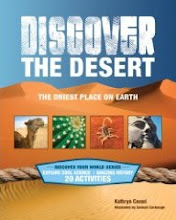
Helping people learn to use words well is a popular topic for online experts. The funny thing is, none of them agree how to do it. Some swear by spelling rules, while others focus on word origins or using tricks to memorize tough words. There are word games to practice skills, word-a-day email services to build vocabulary, and online dictionaries galore. Plus hundreds of sites for people who just love words.
The biggest problem you’ll have searching for websites about words and writing will be sorting through them. But do take the time to dig. You may discover the help you’re looking for in unexpected places, such as sites for parents of dyslexics or for adults learning English. Most sites are reasonably family-friendly. Some have separate sections for “rude” language; only a few have it mixed right in. Keep in mind that sites from outside the U.S. may use British spelling (“color” vs. “colour,” for example).
Search terms you can try include “spelling rules” (26,000 hits alone on Google), “spelling lists,” and “spelling mnemonics” (those little rhymes and sayings that help you remember how to spell hard words – extra points for spelling “mnemonics” right). Take a tip from those SAT prep classes and type in “‘word origins’ Latin Greek” to bone up on English roots; WordFocus.com is a good place to start.
Learning is fun with sites like David Appleyard’s guide to mnemonic initial sounds, which explains how Harry Potter fans knew right away that Slytherin and Snape were the bad guys. Build your family’s vocabulary one word at a time with A Word A Day, online or emailed right to you. Challenge your emergent readers at FunBrain.com. Or if you’ve got a kid who thinks it’s spelling that needs fixing, not kids who can’t spell (a notion that’s been kicking around for probably a century or more without much success – see “Adirondak Loj” near Lake Placid), send him to The Spelling Society for a look at their ames, offisers, leeflets, and so on (and a kids’ page listed in their links).
Many teachers believe the best way to improve writing skills is to write, a lot. Story starters, also called writing prompts, give budding authors fresh ideas. Younger children can try the examples at KinderKorner.com, while Everyday Spelling, the site that supports the textbook series, has writing prompts, word puzzles, spelling lists and more by grade through middle school.
The best online dictionaries, like Merriam-Webster, go way beyond a spellcheck and a thesaurus. Enchanted Learning’s picture dictionary for new readers not only links to related pages on the same site, it also comes in several bilingual versions. LibrarySpot.com has a list of specialty dictionaries, including OneLook.com’s reverse dictionary to find that word that’s stuck on the tip of your tongue. And word snobs can turn to the mother of all reference books, the Oxford English Dictionary, for word games from easy to “fiendishly difficult,” quotations, and much more.
Your kids don’t have to be serious word lovers to love the Spoonerisms, palindromes, and silly signs at Fun-with-words.com. But REALLY serious word lovers should take a peek at how the champs train at www.spellingbee.com, online home of the Scripps National Spelling Bee (which will hold this year’s televised finals starting June 1st). Who knows? They might just get inspired.
